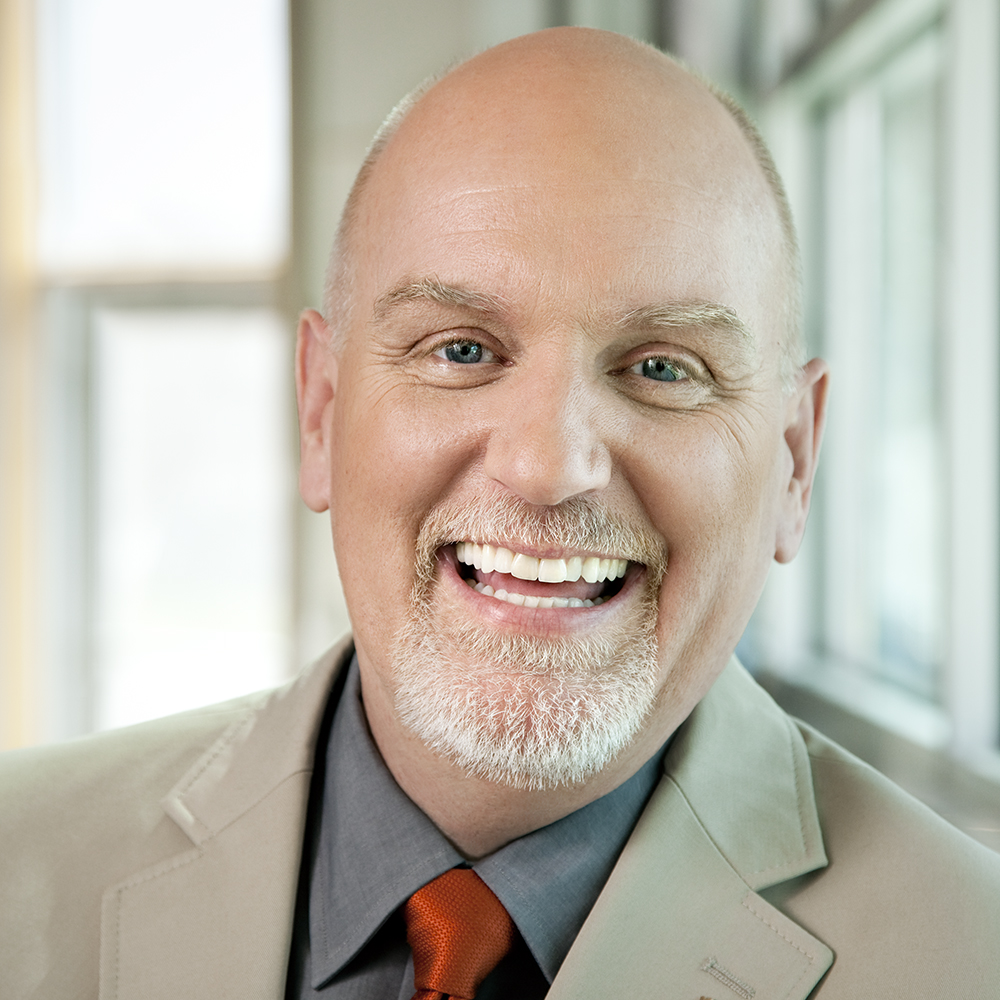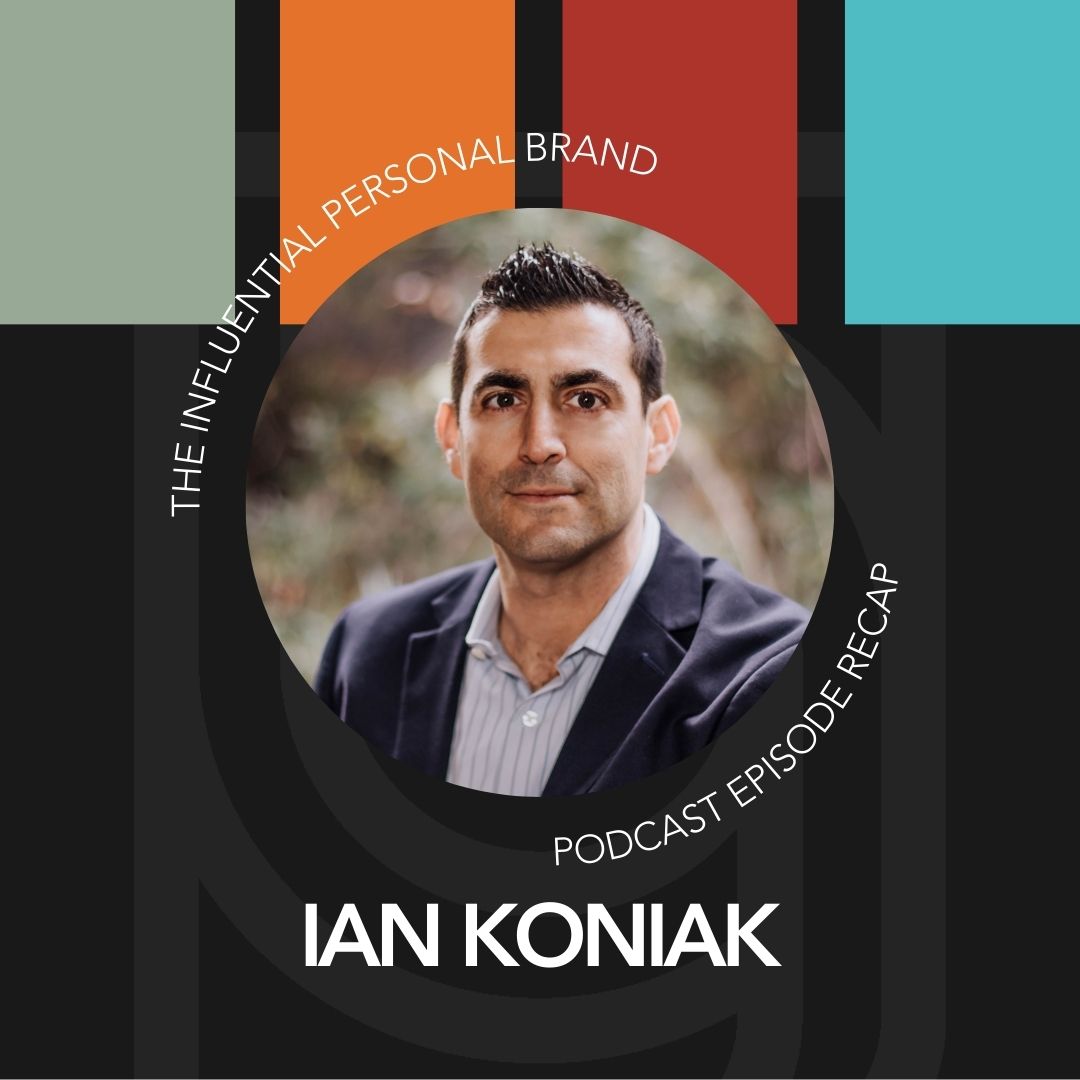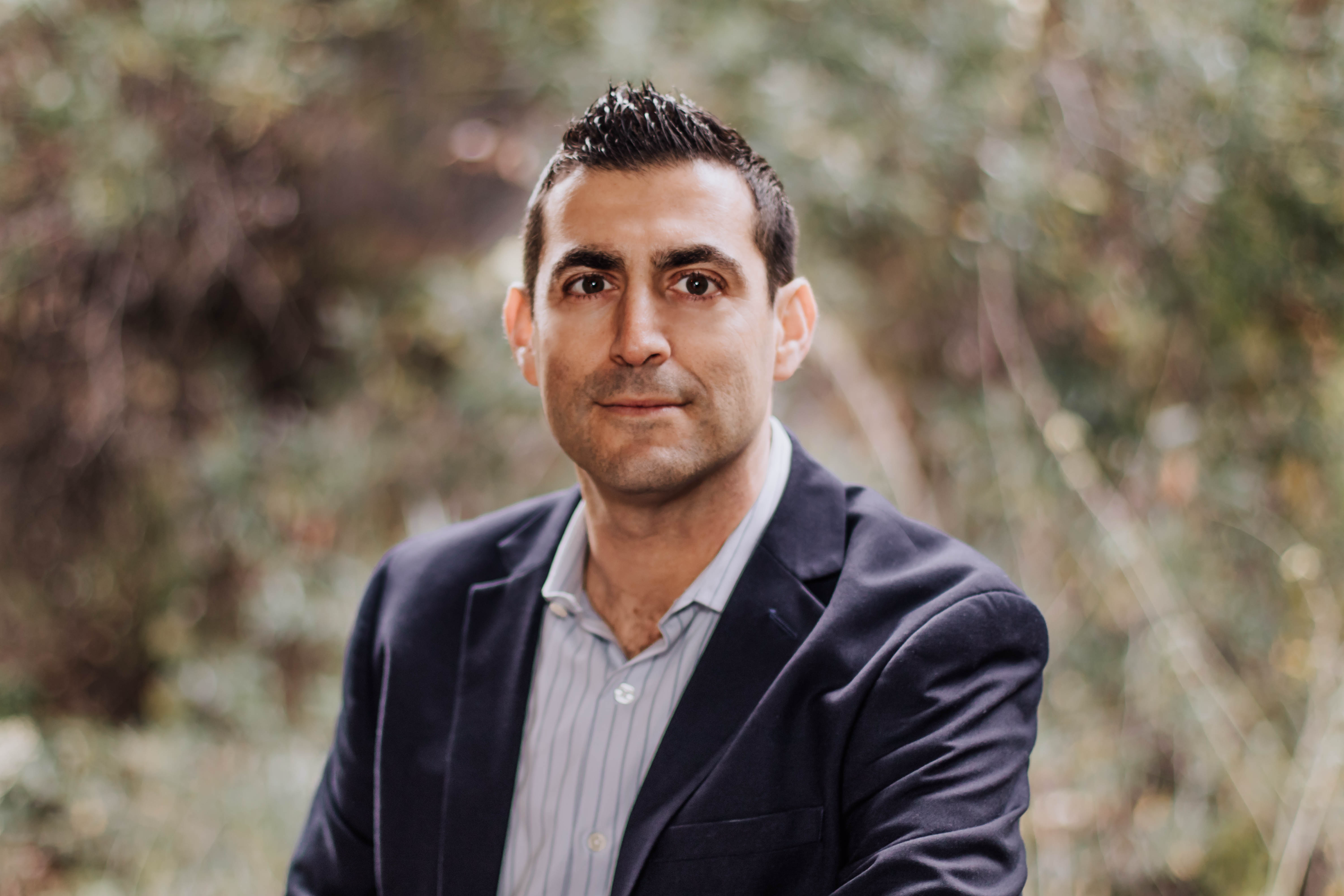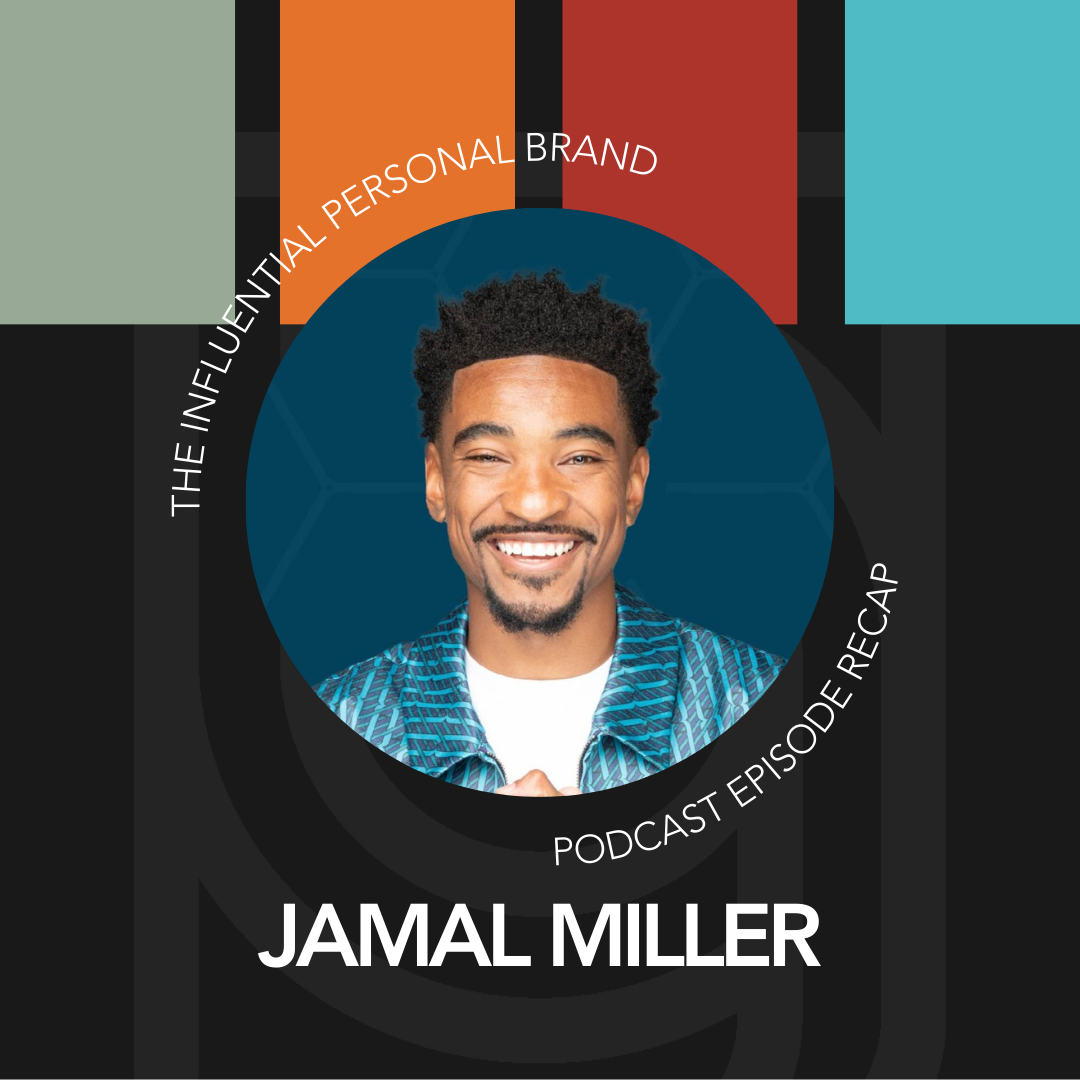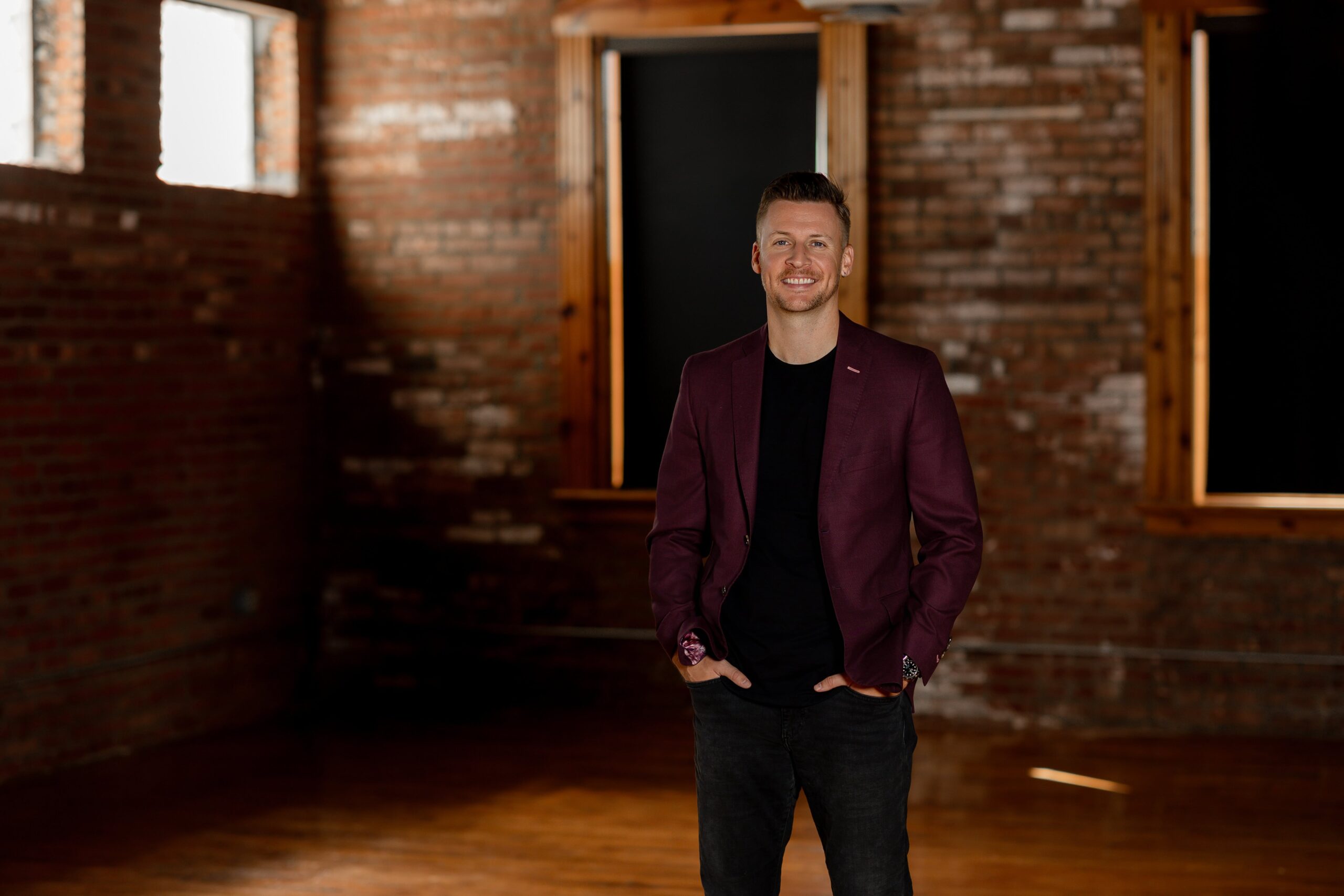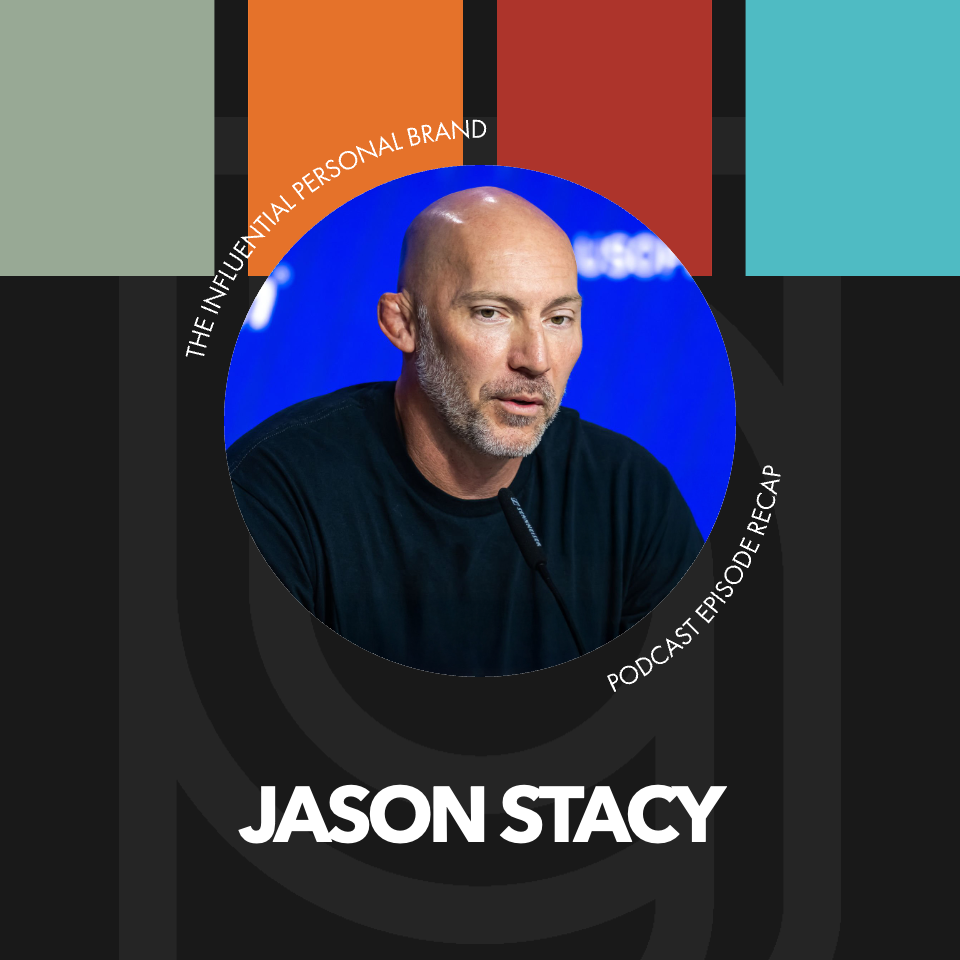RV (00:02):
I’m so excited to introduce to a long time friend and mentor of mine named Chester Elton. We haven’t actually talked for years, but early in my career, I talked to Chester several times. AJ and I talked several times with jester and he’s been a huge encouragement to me. And he’s a great example. Him and his business partner, Adrian of, of owning and dominating a space. Specifically when it comes to workplace culture, these guys have created the space they’ve owned it. They have data from over a 1 million working adults. Chester is the co-founder of a company called fine mojo, which is a global assessment company. He is the author of multiple New York times and wall street journal best-selling books including all in the carrot principle, leading with gratitude, and then their newest one anxiety at work between all their books. Adrian Gosick is his writing partner’s name. Their books have been translated into 30 languages and have sold over one and a half million copies. Chester has been on the today show 60 minutes. He appears in major media all over the globe and it’s just a really, really amazing guy. And so you’ve got to learn, gotta hear some wisdom direct from the source. So gesture, thanks for being here, man.
CE (01:24):
Well, Rory listen, first and foremost. Thanks for inviting me. It’s always great to reconnect with old friends and, and thank you for those kind words. You know, I, I look at the work that you and AIJ have done the stories that you’ve shared your ups and downs. You know, you’re never down, you’re never out, you’re always taking the stairs, see what I did there. And and I, I just love your spirit and the way AJ building your family and building your career. So a delight to be here with you today. Yeah.
RV (01:52):
You know, this is this is a funny fact that people probably don’t know, but one of the most influential ways you’ve been most influential in our life is you told us directly, we need to start making children. And that conversation stuck with us. So emphatic, like in our mind, because you were like, you have to have kids, you’re going to love it. It’s great. The world needs more children from people like you guys and just you know, so thank you for that. Cause I think last time we talked, I don’t think I had kids. You,
CE (02:25):
You did not. So I’m so glad that you took my advice. You know, it is interesting and it’s so easy to get caught up in, you know, what you’re doing and you and AJ, I love what you do. There’s nothing wrong with that. That sometimes you put aside some of the things that really make life rich and important than meaningful, and certainly that has to do with raising a family. And, and I know you love being the dad, you got two kids now, you guys are doing your part so good for you.
RV (02:52):
Yeah, well, we’re doing it. And you know nowadays we’re trying to help people build and monetize personal brand, which of course, you know, met, made for an obvious conversation with you. I know that anxiety at work, you said is your 14th book. And you know, one of the things that we’re always trying to help people do is figure out their uniqueness and find a space that they can own. And I feel like you and Adrian have always been so consistent and you know, owning the culture space, but also data. Like when I think of you, another part of your brand that really speaks to me is just like research and, and science and and the data component of it. I wanted to get your thoughts on how do you, how do you approach a research project? Like for the average person who isn’t, you know, you’ve got this long background in researcher and now you have your own assessment company. Like how do you set about you know, just kind of putting your mind around the idea of conducting research and what counts as research and, you know, how do you just, you know, think about it.
CE (03:59):
Yeah. A great question. You know, we early on figured out that the data gives you all kinds of credibility, right? And so Willis towers, Watson graciously gave us access to their database and international database on employee engagement. And that’s a very rich area to mine. As you recall, we started our, our writing careers around recognition in the workplace. We wrote, you know, the character principle and, and a carrot a day. And the daily, you can have guys for a long, a long time. Yeah, absolutely. In fact, if you, if you Google carrot guys, we, we, we pop up. And so recognition was the space where we really, you know, cut our teeth and then it became very obvious to us that it wasn’t the recognition space that we were really in. It was really the culture space because we never met a great leader, a great team or a great culture that didn’t celebrate their successes.
CE (04:58):
And so we transitioned from being, you know strictly recognition to being culture and our landmark book. There was the all in how the best managers create a culture of belief that drives big results. And that really gave us a bigger canvas to paint on. And that’s where we started getting recognized, recognizes, you know, as leadership gurus and culture gurus with, with with the global gurus list actually, and HR lists and, and on and on because of the research, it wasn’t a feeling. It wasn’t like, oh, this looks or sounds right. It was rock solid data. And when your database gets, you know, over a million, which is way more than you need as you well know it gives you that credibility. Now, what we also wanted to do was say, okay, well, what proprietary you know, insights can we have?
CE (05:49):
And so we developed our own assessment called the motivators assessment. If you’ve taken like strength finders, that’s what you’re good at, or Myers-Briggs, that’s who you are. The motivators assessment, we felt sort of filled in the gap between who I am, what I’m good at and tell me what I’m passionate about. And that’s that Venn diagram that if I know who I am, I know what my strengths are. And I can marry that with my passions. Boy, that’s productivity, that’s joy coming to work and all the things associated with it. So that gave us some proprietary insights. And then as we, as we started to publish more and more around teams and leadership leading with gratitude was a book. Our timing was impeccable, Roy, our, we, we launched that book in, in, in March of 2000. We bought every available front of store space at airports because that’s where people buy business books.
CE (06:42):
We even said, if you buy this book, we’ll give you a pair of gratitude socks, because this book will knock your socks off. And literally two weeks later you couldn’t find, you know, a mouse in an airport. And while this is in March of 2020. Yes. And so, and yet, and yet the timing was also good because it was a time where people needed to step back and say, I know what I’m losing. What am I grateful for? And it gave us a great opportunity to get out there with leaders and cultures and saying, yes, I understand that you can’t do a lot of the things that you used to do before. I understand that life is more difficult in homeschooling and so on. And yet in all of this, what are we grateful for? So it gave us a wonderful opportunity to take a deep dive into an emotional connection, to gratitude and leading with gratitude.
CE (07:31):
And we have some wonderful stories and partners, well, our publisher at the time and still is our publisher Harper business. Adrian and his son had been working on a father, son project around anxiety. Anthony constant. His son had suffered from severe anxiety since a little kid. One of my sons also at that happened and took the project to Harper business. And they said, well, this isn’t, you know, you have no credibility in the self-help section. This is a business book. People are suffering from anxiety at work, like never before. So you wouldn’t normally publish a book every year. A book is a big project. Well with COVID not traveling, not speaking, we had the time we cranked it out very quickly. And this is by far Rory our most important book. Our favorite book is leading with gratitude. Our most important book is anxiety at work because it is so mission-driven because it fits neatly under that umbrella of culture. You can’t have a high-performance culture. You can’t be a high-performing person if you’re suffering from severe anxiety. So the two married up so nicely, and we’ve, we’ve, we’ve had a lot of fun and a lot of success. So did you start
RV (08:41):
In assess, did you do how did you build, did you build assessment around the anxiety work to create, like, or did you pull it out of the motivators assessment? Is that where you pulled the data out of
CE (08:54):
Excellent question and wonderful insights? You’ve clearly asked a lot of questions before Rory you’re, you’re good at this. But what happened is with the database and we’ve had over a hundred thousand people take the motivators assessment is we were able to parse out generational differences. What were the generational differences in motivation? And then as we looked at the really current and timely research around who is suffering the most from anxiety at work, it was obvious that for, and I’ll give you some numbers just really quick in, in 2018, about 18% of employees referenced some kind of severe anxiety in the workplace. So one in five, basically by 2020, the middle of 2020 that had jumped to 30% overall. When you look though at millennials and gen Z, you know, early twenties to early thirties, it was over 40%. It was 42%.
CE (09:50):
On top of that, you took specifically millennials and gen Z 75% said that they had left a job recently due to a mental health episode. So really the number one issue in the workplace generationally, we were able to see those insights through our motivators assessments about what matters to you. It’s it’s family it’s impact. It’s learning coupled with outside data that said, this group suffers more than any other. And it was really remarkable confluence of, of data stories, interviews, and then tools to deal with, how do I reduce my anxiety in the workplace?
RV (10:29):
Interesting. How did you build the motivators assessment? Like what, what’s the, what did you do? I mean, obviously you go, Hey, let’s build our own assessment. You kind of figure out this space, you go, Hey, there’s a test that does this. There’s a test that does this. We would like to have a test that does this. And then what do you do after that?
CE (10:48):
Well, you go find people that build amazing assessments. And that’s what we did. We, we contacted gene graves and Travis Bradberry who produced the emotional intelligence 2.0 assessment. And you’ll love the conversation. And this is, you know, building your personal brand, right? When you’re building your personal brand, what is your niche? Where it can, as you say, where can you dominate? And then what makes you different than everybody else? And of course, having proprietary data does that in a brilliant way. And so you’ll love the conversation though. So we called up Jane and Travis and we said, Hey, we’ve got this idea. And you know, it’d be identifying people’s passions. It’s, you know what motivates me, put your passions to work. We self-published the book around that and all the training and so on it. And they said, yeah, yeah. So we wait two or three conversations and it was not an inexpensive proposition.
CE (11:39):
I mean, if you want to do it well and have a third-party vetted and have it be a valid assessment, you’ve it takes time. It, and you want experts in of course, experts are expensive. So they, it came down to this and you’ll love this Rory because you know, it really does come down to personal relationships and everything you do, right. They said, okay, well, we have three criteria as to whether it will take a project on. And they are, these said, first is, is it interesting work for us? So think about that. They said, we get approached all the time to do stuff like this. So first and foremost, will it be challenging? And will it be interesting for us to create this assessment? And the answer to that is yes. Secondly, is we have to ask the question, will it help people like, will it be helpful?
CE (12:26):
Well, it helped change the world to make it a little better place. And as we think about what you want to do and how we could put this together, the answer to that question is, yes, the answer, the third question is by far the most important, and it’s this, do we like you because you’re going to spend a lot of time together. Right? And if we don’t like you, it just will not be worth it. So luckily they check the third box as well. And it took us about a year and a half to develop it. We had a third-party vetted, did all kinds of alpha and beta testing. And yeah. Now we’ve got this wonderful assessment that gives us incredible insights, generationally industry gender and so on.
RV (13:07):
I love that. I mean, I think that it, thank you for sharing that because it’s really helpful to go, you know, for me to sit down and create an assessment that passes all the likes, statistical validity and probabilities and margin of error and all that is like super intimidating, but to go, oh, like anything, you pay some money, you hire, you hire the person and you go out and you get it. You make an investment and you get it done. And then you have this proprietary proprietary thing. So I, I love that. And I love what you’re saying about how proprietary proprietary data helps you dominate. So you create this assessment, you’re measuring a bunch of people are taking it. You’re drawing insights from that too. You’re drawing insights from that to create the books. How do you actually sell the books once you have them? Because it’s like, I feel like everyone that talks about books, it’s really about how to get the book, deal, how to come up with the idea, how to write the book, how to publish the book, but nobody ever talks about like, what do you actually do that sells books? Like that gets a lot of people to buy. I mean, you sold one and a half million books. Like how do you do that? Yeah.
CE (14:22):
Yeah. Yeah. I think we’re actually about 1.7 these days. I’ll tell you, you say, how do you sell a million books? You sell them one at a time. You really do. It’s really interesting, you know, back to the personal brand, then we’ll circle back to how do you sell books? It’s really interesting. Like you say, you know, you just don’t go create an assessment by yourself. You, you find experts. You know, you live in Nashville. I live in Jersey, in Jersey. There’s a that look, I know a guy who knows a guy, right? You get your network. I know a guy who knows a guy who can, can do that for you. You know what I’m saying? And so you do your surround yourself with really good and really smart people. It’s the same thing in publishing, you know given that we’ve written 14 books now, we’ve, we’ve made every mistake humanly possible, and we’ve actually helped about a dozen people get published.
CE (15:13):
And so you do your surround yourself with great people. I’ll tell you a really interesting story about leading with gratitude. We always hire a personal editor to edit our books. As, as you know, we put the concept together, we’d go to the publishers. They buy the idea. They buy the marketing plan. Not only do they need to love the concept, they need to love, how are you going to go to market? In other words, they can print it. They can get you a distribution. They’ve got a PR team that can help you, you know, get on the various podcast and get on various shows. And so it’s really up to you as the authors to sell the books. And so what does your network look like? So, you know, we’ve got 625,000 followers on LinkedIn. We’ve got an internal newsletter where we have just under a hundred thousand subscribers within LinkedIn.
CE (15:58):
We write business books. So we place our bet on LinkedIn. If you’re a different kind of author, you might play place your bet on Instagram or Facebook or whatever the point is is that, you know, find your community, build that brand in the community, build your reputation and then build your followership so that when you put stuff out, people will view it. It’s, it’s so interesting that when you build your brand first off, and we did this with an ad agency in New York years and years ago, when we were writing all our books with, with carrots in the title said, what is your noble cause? You know, what is it that really is going to bring people to you? Is it, you know, breast cancer awareness, right? Is it autism? What is it? And for ours was creating great, you know, great cultures where people were excited to come to work, where they believed what they did mattered.
CE (16:50):
They made a difference. And when they made a difference, it was noticed and celebrated. It was that simple. And it was great. That’s a noble cause. Then the second piece is, are you, are you the spokesperson or the spokes in our case, there’s two of us. And are you likable and never underestimate likable? You know, are you really emotionally connected to your cause? Do people want to hear from you? Do they trust you? Do they like you? And so we were able to check that box, you know, Andrea and I both, you know, very passionate about what we do. We’re also passionate about taking what you learned in the workplace, into your personal lives, to your families, making families stronger and community stronger. So this that check the box. The third one was really interesting. They said, do you have a symbol that people can rally around?
CE (17:40):
And you think about, you know, breast cancer awareness, it’s the pink ribbon. And then how that has manifested itself, when you can get the world’s toughest athletes, NFL football players wearing pink cleats, you’ve arrived. Right? And it was very identifiable. And so for us, it was the symbol of the carrot, which we continue to use in our work. And so on. It’s very simple. The carrot is that is the positive reward for, for all your hard work. We even created a little mascot. And that was the fourth thing. Do you have a mascot? A nice to have, not a must have. And so we have Garrett the carrot. So wherever we go and we engage people, we, we, we, we give them a carrot or, or a small reward. Well, as you build that brand and you build that network and that followership, then it becomes easier for you to say.
CE (18:26):
And by the way, if you understand the data, if you listen to the stories, which are the case studies, that data gives you credibility, the stories are what people remember. Then here are the tools and you find the tools in our books. So you’re going to want to buy the book. So, you know, you, you build your followership with your podcast, with your newsletter, with your followership on whatever platform makes sense. You start making lists, you get known as an authority in your space. You build that marketing machine and it makes it easier to sell books. It’s a lot of work because selling books, as you know, that’s hard work.
RV (19:04):
And is the, is the assessment, how does the do people, is the assessment free? Does it come with the book? Is it cause like some of them you have to buy the book and it comes with the assessment is, is like how do you do it?
CE (19:16):
Yeah, we’ve done all of the above. A very, we first published the book called what motivates me, put your passions to work in the code was in the book very much like StrengthFinders and emotional intelligence, 2.0 later, we actually pulled the book from the market because it was, it was cannibalizing our training somewhat. And then it was simply online. It’s a digital version. It’s very, very scalable. We had the the culture works, which was our training company. We’ve now moved to strictly a data company, which is fine mojo. And there is a freemium model. So you can go on and you can take the assessment and we’ll give you a part of the data. If you want the whole report, you pay a small fee to get that. And then the work that we’ve really discovered is very helpful with the motivators assessment is in building strong teams as a team leader.
CE (20:03):
I understand my motivators. Then I understand the individual motivators. If each person on my team and each team member understands their motivators as well. Now, it becomes really interesting when you start to bleed into other platforms and distribution models, we’re working on a very interesting platform right now on can we tie a platform where leaders can come in, adjust their behaviors, do very specific things, log that online, to reduce anxiety, to build stronger teams. And we’re hoping to launch that at the end of end of July. Well, that’s where you’re making a huge difference. And that’s where you’re using your data and your insights to then change behaviors for the better to create better workplaces, stronger teams, better leaders. Yeah. I love
RV (20:52):
That. So I want to ask you a little deep dive about LinkedIn, because you guys do dominate. I mean, you dominate on LinkedIn which you know, is really smart for what you’re saying. It’s like, this is where my audience is and you know, and I feel like, you know, you’re more there like then on Instagram, right? So it’s like, oh, sure. Yeah. You know, you go follow what you’re doing on LinkedIn. And you’re like, oh my gosh, these people are celebrities on Instagram. Not as much your audience, isn’t there to the same extent. So how do you, how have you done that on LinkedIn? Like, I’m, I’m curious specifically about what has worked well for you on LinkedIn.
CE (21:31):
Well, yeah. And, you know, cause you grew up in sales and I grew up in sales. You have to place your bed. You know, if you’re trying to be too many things to too many people, you end up being nothing to everybody. Right. And so it became very clear for us that, you know, LinkedIn was the place where business people go and we write business books. So it was a bit of a no brainer early on in LinkedIn. Again, this is, you know, surrounding yourself with really good people. So I had a very, a very good friend who worked at LinkedIn here in New York. And he literally, we go to the same church and he came up to him and he said, you know, I love your books. I love all the carrots stuff and everything. He says, you know, I’m at LinkedIn, they’re starting an influencers program and you should be an influencer.
CE (22:11):
So we got in very early, you know, when there were only a few hundred, then it went to be, you know, over a thousand and then they paired it back. Which was really interesting if you weren’t, if you weren’t using your LinkedIn influencer platform over a certain period of time, they, they pulled it. Which makes sense. You know, if you’re not, if you’re not going to use it, why bother? Why bother? And that was a huge break for us. Now you have to be invited to be an influencer. You can make yourself aware it’s an invitation. So again, if, if you say, oh great, I for example, I had an author contact and she said, well, I would love to be an influencer. Can you introduce me? I said, yes, I can understand. It’s an invitation. And as I look at your profile, you have 1500, or maybe she has 2,500 followers.
CE (22:59):
I go, that’s not influencer status. You know, you’re not going to become an influencer. If you have 1500 followers, you know, half a million is probably, well, probably 250,000, but you get, the idea is you have to have a certain amount of gravitas. And then that influencer program was a huge boon to us because as they would start to pilot new programs, they would go to their influencers. First, when they started to do newsletters, they said, we want you to do a newsletter. Is it crate? What is that? How do you do that? Right. So they’ve coached you through it. And they said, the great thing about a newsletter is when you post something, it goes to your followers, right? And to a fraction of your followers, really a newsletter goes to your followers inbox because they subscribed to it. They asked for it. And we started with a newsletter once a month.
CE (23:51):
And I think we ended up, you know, early on with like 1500 subscribers. And then every month we would publish, they would grow. And then they suggested that we go to twice a month. I think once a week is too much. I mean, I, I want to hear from my wife at least every week, but for me, you know, every week. And so we went to twice a week, well, we just passed the year benchmarks. So we had what we went to twice a week and that we have like 18 newsletters. We’re just under a hundred thousand subscribers where our message goes right to their inbox. They encouraged us to do a podcast, which we do with anxiety at work, wonderful guests. They said, we’re doing a LinkedIn live. We’d like to do a LinkedIn live show. We did, we have a LinkedIn live show every Thursday on leading with gratitude that then we turn into a podcast.
CE (24:42):
And so, you know, it’s, it’s layer upon layer upon layer as you build it up. So we’ve got our followership, we’ve got our newsletter, we’ve got our LinkedIn live show. We’ve got our podcasts. I started a really just goofy thing where when COVID started, I just post a photograph every day of something I’m grateful for. And it’s amazing, you know, you get 30,000 hits on that and depending what it is, and, and I’m probably like you I’ll post something and it’ll, it’ll go phenomenally well and go, well, what was it about that that made it great. And I can never figure it out. You know, I’ll write this article for our newsletter. And I think that is genius. Like Cheshire, you know, you’re gonna love it. You know, there was a viral for sure, there’s a Pulitzer. There’s gonna probably be a movie deal, you know?
CE (25:30):
And, and, and nobody, and it doesn’t resonate. And then you’ll, you’ll do something. I’ll take you 10 minutes to write and you put it and people go nuts. So the, the point that I’m making there is so much of it is trial and error. The thing is to really be consistent. So, I mean, every day I’m posting some little photograph every two weeks, we’ve got a newsletter every week. We’ve got a LinkedIn live show every week we’re dropping on our podcast. And, and that’s what you get to do a lot of places. Now, as my friend from Texas would say, it’s a long road to a small house, circling back to how do you sell books? Often it takes four to five hits for somebody to say, yeah, I’ll buy that book unless it’s your friend that says, you know what, Roy, you got to buy this book and say, great, I’ll buy. Other than that, you know, they’ve got to hear about it on a podcast. They see it posted in the newsletter. You’re doing an interview on another podcast. You’re getting, you know, on and on. It’s about four or five hits. That’s why you’ve gotta be in so many places. And that’s why, what you put out has to be quality work again, why we hire internal editors to make sure that not only are we, are we on message, the product that we’re putting out is world-class.
RV (26:43):
Hmm. Gosh, that’s so good. It’s such a good, such a good reminder of, of just the reality of, of, of what it takes. Thank you for this gesture. Where do you want people to go if to learn about you guys and your work clearly you’re on LinkedIn.
CE (27:01):
That part’s easy. Yeah. you know, LinkedIn is, is where you can find us all over the place it goes to get on.com is our website with our latest podcast, wherever you get your podcasts, anxiety at work, I highly recommend it. You know, the thing, the reason we’re so passionate about this particular subject and why I really encourage people to go there is that only one in 10 employees feel comfortable talking about anxiety to their bosses. It’s the number one issue in the workplace. And if you can’t talk about it, you can’t solve it. Do you know what I mean? We’ve got to create safer places. So I really would recommend that you listen to the podcast. So many leaders, many of them entrepreneurs who you would never think of had a bad day in their lives have suffered from severe anxiety. And by them sharing their stories, it makes it safe for you to share your story and to build not just a better place to work, but to build a better life. So LinkedIn gods to can hilton.com our podcast, sign up for our LinkedIn newsletter. It’s all real positive stuff and listen to Rory Vaden and whatever he does or whatever he says, just do it because he’s a great advocate for not just building better brands, but building better lives and always a pleasure to be with
RV (28:16):
You, right? Oh, I’ll, I’ll always a pleasure. My, my brother is good to see you and we’ll be watching closely and we wish you the best. Thanks so much. Take care and be well.

